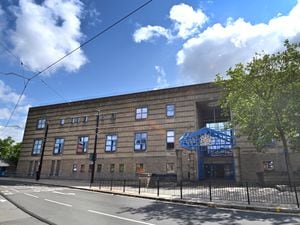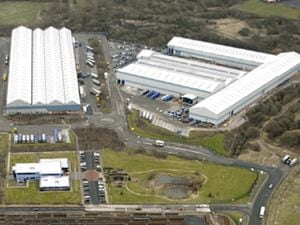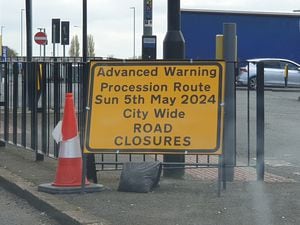Homelessness in Wolverhampton up a quarter to 1,700
Claims of homelessness in Wolverhampton have risen by more than a quarter in the last 12 months, it can be revealed.

The number of people seeking help with accommodation rose from 1,326 in 2015/16 to 1,700 in 2016/17.
Meanwhile official figures for the number of people sleeping rough in the city increased from 18 to 23 over the same period.
Rough-sleeping data is disputed by campaigners, who claim the actual number could be up to four times higher.
The figures come just days after Chancellor Phillip Hammond announced a new Homelessness Reduction Taskforce which will seek to halve the number of rough sleepers by 2022, and reduce it to zero by 2027.
And the West Midlands will be the national pilot scheme for Housing First, an initiative that gives free accommodation to people who live on the streets in a bid to help them rebuild their lives.
A council spokesman, said: “The rise in figures is in keeping with the national picture due to the impact of welfare reforms and the reduction in resource for services.
“However, City of Wolverhampton Council wants to buck the trend and reduce the number of rough sleepers by remodelling provision.
“This includes the transfer of operational homelessness services to Wolverhampton Homes, which will take place on December 4; the implementation of private sector housing schemes; and the leader of the council’s rough sleeper task force.”
Councillor Wendy Thompson, opposition leader, said unemployment could be a factor. She added: “More than anything we want people in work and in well-paid jobs.”
Nationally between March and June nearly 15,000 households were accepted as homeless in England, the highest number since 2008.
Meanwhile in 2016 an estimated 4,134 people bedded down outside, an increase of 16 percent on the previous year’s figure of 3,569 and more than double the 2010 figure.
Rough sleepers are defined by the council as people sleeping, or bedded down, in the open-air such as on streets, or in doorways, parks or bus shelters.
The definition also includes people in buildings or other places not designed for to be lived in such as barns, sheds, car parks and cars.
Documents released ahead of a Wolverhampton cabinet meeting next week state a number of reasons for the increase in the city. These include three people who have been excluded from all accommodation services due to serious violent and aggressive behaviour related to drug and alcohol issues. Eight others are not willing to engage with the authority - including offers of accommodation - due to their addictions, the report claims.
It states: “The added addition of new drugs such as Spice and Mamba have added extra risk due to unknown nature of how the individuals react whilst under the influence and its toxic nature.”
The report also states that half of the city’s rough sleepers have no access to benefits because of their immigration status.
From April new legislation will require authorities to provide earlier intervention to prevent homelessness. For Wolverhampton this could mean an estimated increase of more than 500 cases each year at a potential cost of £750,000.
Plans to remodel the council’s homelessness service ahead of the legislation will be put before its cabinet on Wednesday.





